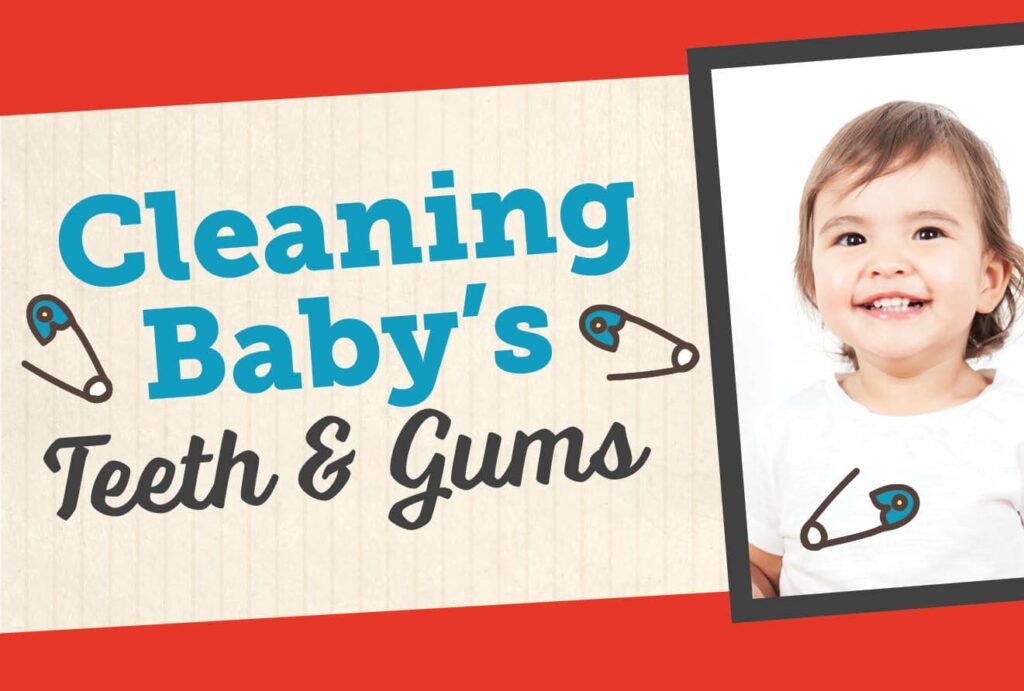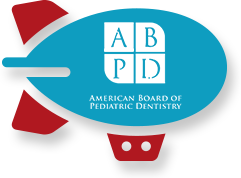August 23rd, 2021

Did you know that good oral hygiene begins early? Even before your baby’s first tooth appears, the gums can benefit from your careful attention.
Caring for Gums
After breast- or bottle-feeding, wrap one finger with a clean, damp washcloth or piece of gauze and gently rub it across your baby’s gum tissue. This practice both clears your little one’s mouth of any fragments of food and begins the process for building good daily oral care habits. As your baby continues to grow, consider carefully what you put in your child's bottle or sippy cup especially at bed time.
Baby’s First Tooth
When that first tooth makes an entrance, it’s time to upgrade to a baby toothbrush. There are usually two options: a long-handled toothbrush that you and your baby can hold at the same time, and a finger-puppet-like brush that fits over the tip of your pointer finger. In each case, the bristles are soft and few. Regularly cleaning baby's teeth helps establish this habit from an early age.
Under age three, we recommend using a grain of rice sized amount of fluoride toothpaste. During the teething process, your child will want to chew on just about anything, and a baby toothbrush with a teether can become a favorite toy during this period.
Proper oral hygiene begins early and works great when parents make cleaning baby’s teeth a daily part of their routine from early on. These tips should help your child should build the habits that make a grand slam smile!
Tags: Dental Care, Preventing Cavities, Baby Teeth, Oral Care, Cavities, Cavity Prevention, Oral Health, Infant Oral Care, Pediatric Dentistry, Pediatric Dentist
Posted in Oral Care, Dental Care, Oral Health, Preventing Cavities, Baby Teeth, Preventative Care, Dental Hygiene, Teething, Dental Health, Gum Health, Oral Health Care, Healthy Mouths, Baby Care | No Comments
August 1st, 2013
Is it time to get rid of your old toothbrush and pick up a new one? Great oral health begins with the right tools and your toothbrush is the first line of defense. Here are four great tips to help make sure your toothbrush is in top shape!

January 3rd, 2013

At Union Pediatric Dentistry, we care about your child's dental health and want to partner with you to keep them healthy for a lifetime. Protecting your child's teeth begins with the first line of protection for your child’s teeth: the enamel. Tooth enamel is the white, visible part of the tooth. It’s also hardest substance in the human body, and yet it takes a lot of abuse. Enamel can crack, chip and wear away. What steps can you take to protect your child’s enamel?
Use a soft toothbrush. While we may be tempted to use a toothbrush with hard bristles, thinking that a stiff bristle will be better and cleaning teeth, the best choice is one that provides more gentle care. Additionally, children often use more force than needed when brushing their teeth. This can be damaging to sensitive gum tissue and only serves to wear down precious enamel.
Limit starchy foods. While we all understand that certain starchy foods like potato chips and french fries aren’t always the healthiest choices, we don’t often associate these foods as being bad for teeth. Interestingly, starch turns to sugar so quickly that it raises blood glucose levels even faster than table sugar. The sugar produced by starchy foods feeds bacteria that act as microscopic jack-hammers on your child’s enamel.
Don’t forget the cheese. Cheese truly is a dental powerhouse. Dairy neutralizes acid, contains calcium and a protein called casein which acts as an enamel protector. Cheese is a great choice for an afterschool snack.
Drink water after meals. Drinking water shortly after eating is an excellent way to quickly wash away some of the food that lingers on and between the teeth. Even having children simply rinse their mouths with water after meals has been shown to be an effective way to protect enamel.
Avoid “whitening” toothpastes. Toothpaste made specifically for children is often the best choice when deciding what they should brush with. Not only are flavors often more kid friendly, but they generally don’t carry the harsh abrasives that many whitening toothpastes have. These abrasives can act like sandpaper by wearing down the enamel on young teeth. Remember, any toothpaste you choose should always carry the ADA’s seal of approval.
Have questions? Please call our office, or ask a member of the Union Pediatric Dentistry team when you are in for your next appointment!




